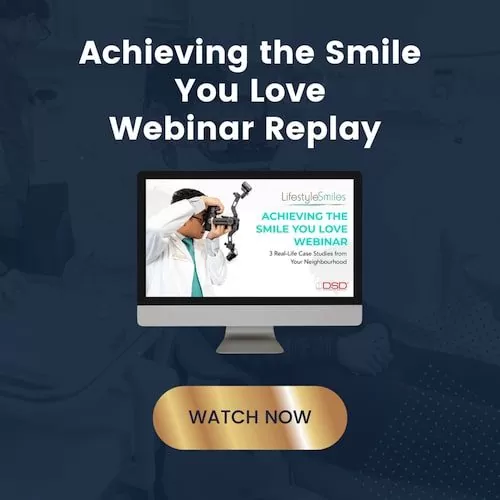How to Stop Clenching your Jaw & Grinding Your Teeth
If you often find yourself unconsciously grinding or clenching your teeth during your sleep, you’re not alone. This condition, known as bruxism, affects millions of people worldwide and can have a serious negative impact on your health and well-being.
While bruxism is often seen as a minor issue, it can lead to serious problems such as pain, headaches, jaw problems, and even tooth loss. Fortunately, there are a number of treatments available to help you stop clenching your jaw and avoid any serious damage.
Knowing the causes and risks associated with bruxism, as well as the available treatments, is the best way to ensure that the condition is properly managed and does not cause any further damage.
What causes you to clench your jaw?
While the exact cause of bruxism is not known, stress and tension are often seen as the primary causes of the condition. When people are stressed, their bodies produce tension and clenching of the jaw muscles is often a way to release the tension.
In addition to stress and tension, there are a number of other potential factors that may contribute to your jaw clenching:
- Other psychological factors such as anger, fear, and frustration.
- Mental health issues such as anxiety, depression and substance abuse.
- Underlying medical conditions such as Parkinson’s disease or gastroesophageal reflux disease (GERD).
- Certain medications or substances, including certain over-the-counter painkillers, antidepressants, and alcohol.
- Lifestyle factors such as poor sleep habits and poor diet.
It is important to note that bruxism can be caused by a combination of factors, and it is not always possible to pinpoint a single cause.
Signs and Symptoms of Bruxism
The most common sign of bruxism is teeth grinding and jaw clenching, causing a loud, grinding noise that can be heard by others. This can occur while you are awake but more often than not it happens while you are asleep.
Other signs of bruxism include headaches, earaches, and facial pain. If you are clenching your teeth while you sleep, you may wake up with a sore jaw or a headache, or you may experience a popping or clicking sound when you open or close your mouth
You may also have trouble sleeping and difficulty concentrating due to the discomfort of clenching your jaw.
In extreme cases, bruxism can cause damage to your teeth and gums. This can include chips, cracks, and worn enamel on your teeth, as well as receding gums. It may also cause your teeth to become loose, or for your jaw to become misaligned.
Dental Risks Associated with Clenching your Jaw
The primary dental risk associated with bruxism is damage to your teeth and gums. This can include chips, cracks, and worn enamel on the teeth, as well as receding gums. Additionally, bruxism can cause your teeth to become loose, or for your jaw to become misaligned. In extreme cases, bruxism can cause tooth loss.
Bruxism can also lead to a number of other dental problems, including jaw pain, headaches, teeth sensitivity and difficulty speaking clearly.
Diagnosing Bruxism
In order to properly diagnose bruxism, it is important to visit a doctor or dentist. Your dentist will ask questions about your symptoms, perform a physical examination of your mouth and jaw and in some cases, order imaging tests, such as X-rays, in order to better evaluate your condition.
How to stop clenching your jaw
Stress is one of the most common triggers for bruxism, so it’s important to develop healthy stress management and self-care techniques to reduce tension that causes you to clench your jaw.
- Reduce your stress levels
Stress can be a major trigger for jaw clenching, so it’s important to find ways to reduce stress in your life. Exercise, yoga, and meditation are all great ways to reduce stress.
- Progressive muscle relaxation
This involves tensing and then relaxing each of the major muscle groups in your body, starting with your feet and working your way up to your jaw. When you reach your jaw, squeeze it tightly for a few seconds, and then release and relax it. This can help to reduce the tension in your jaw and relieve the symptoms of bruxism.
- Practice mindfulness
Mindfulness involves paying attention to your body and focusing on the present moment. When you notice your jaw clenching, take a few moments to focus on your breathing and relax your jaw muscles.
- Improve your posture
Poor posture can lead to tension in the jaw, so it’s important to sit and stand with your head and neck aligned. You can also practice jaw exercises and stretches to help relax your jaw muscles.
- Practice good dental hygiene
Brushing and flossing your teeth regularly can help reduce the number of bacteria in your mouth, which can help reduce the amount of jaw clenching.
- Get enough sleep
Poor sleep habits can lead to tension in the jaw and make it more likely that you will clench your teeth. Aim for seven to nine hours of sleep each night to ensure that your jaw has enough time to relax.
- Make changes to your diet
Limit your intake of foods that can cause bruxism. Certain foods such as coffee, alcohol, and sugar can all make it more likely that you will clench your jaw. It’s also important to limit your consumption of hard or chewy foods, which can put more strain on your jaw muscles.
- Drink plenty of water
Staying hydrated can help reduce tension in the jaw and make it less likely that you will clench your teeth.
- Try a natural remedy
Herbal supplements, such as valerian root and chamomile, can help reduce stress and anxiety that may be causing your jaw clenching. Magnesium supplements can also be beneficial for bruxism, as magnesium can help relax the muscles in the jaw.
- See a physical therapist
Physical therapists can help you learn how to relax your jaw muscles and reduce tension in your jaw. They can also provide you with exercises and stretches to help improve the strength and flexibility of your jaw muscles.
What to Do if You Suspect Bruxism
If you suspect that you or someone you know may be suffering from bruxism, it is important to seek medical advice. A doctor or dentist can help diagnose bruxism and recommend the best course of treatment. Remember, it’s important to avoid self-diagnosis and self-treatment, as this can be dangerous and can lead to further complications.
Disclaimer: The material posted is for informational purposes only and is not intended to substitute for professional medical advice, diagnosis or treatment. Results vary with each patient. Any dental procedure carries risks and benefits. If you have any specific questions about any dental and/or medical matter, you should consult your dentist, physician or other professional healthcare providers.
Related Articles
No Results Found
The page you requested could not be found. Try refining your search, or use the navigation above to locate the post.









